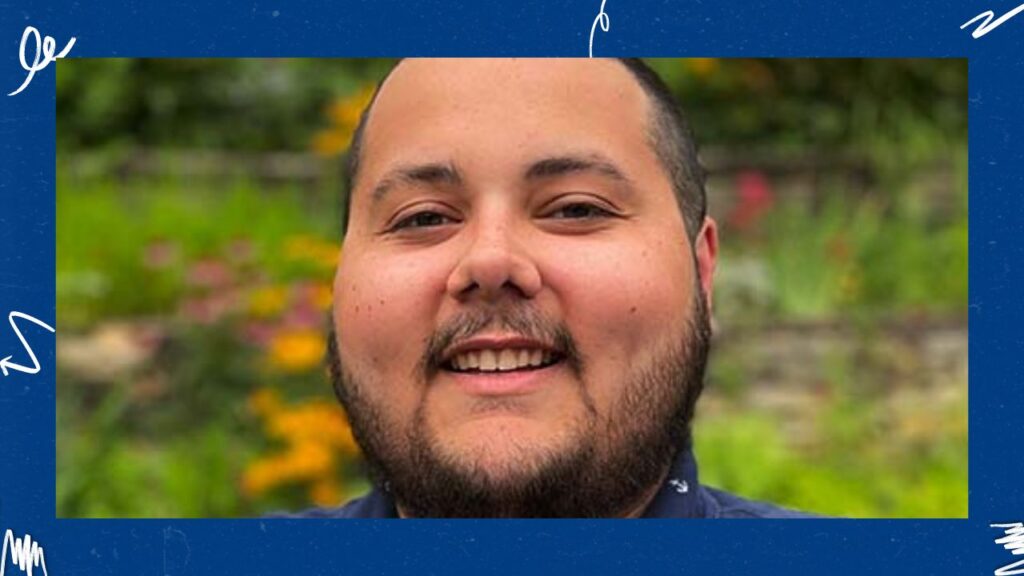How an extra-credit assignment helped enhance my spirituality
By Christian, age 25, Ambassador with Springtide Research Institute

Springtide Research Institute is a nonpartisan, nonprofit organization, that delivers accessible social-scientific research on young people ages 13-25. Springtide is paying particular attention to the changing landscapes of meaning, identity, and community when it comes to understanding emerging generations. One way they do this is through facilitating the Springtide Ambassadors Program which is open to teens and young adults throughout the U.S. Springtide Ambassadors help shape the research efforts and community engagement of Springtide. Through collaboration and reflection, Ambassadors actively contribute to national research projects and publications sharing their insights, perspectives, and experiences. 2024 Ambassadors were recently invited to submit a piece to Faith Counts that responded to the following prompt:
Discuss an interfaith experience you’ve encountered personally or observed in your community. Reflect on how this experience challenged or enriched your understanding of religious diversity, tolerance, and cooperation. Consider the impact of interfaith dialogue on promoting harmony and understanding among different religious traditions.
Below is an essay we’re thrilled to share from Springtide Ambassador, Christian, age 25:
During the fall semester of my sophomore year in college, I started to have deeper conversations about my faith that would become the foundation for my current spiritual activity. Upon discerning what my career would be after college, I decided to expand my religious literacy and took a class called “Introduction to Judaism.” The course included research projects on important topics in Jewish culture (that would eventually strengthen the foundation of my Catholic faith) and an extra credit project where we had to visit a synagogue – what more of a hands-on education could I ask for? Shortly before Thanksgiving break that semester, the world was shocked to hear the news of the shooting at Tree of Life Synagogue in Pittsburgh, Pennsylvania. When we entered the classroom three days later, the professor was distraught, and I could tell that the class would not be discussion-based that day.
MORE: Gen-Z voices experience their neighbor’s faith
I remember the professor asking us to stand up and pray but he would not start the prayer until he saw that everyone’s desk was empty, and their eyes were on him. We could see the anxiousness in his eyes, the uncertainty he felt, because here was a group of students that he supported, and he was internally begging them to stand with him and pray to a God, a God that we all share. We weren’t focused on our own religious faith at that time, we were focused on our faith in humanity and how a community like ours could support someone that was helping to craft the foundation of our academic careers.
One week later, I decided to attend a service at a synagogue for extra credit. When I arrived at Temple Beth Zion-Beth Israel in downtown Philadelphia, which I came to find out was a Conservative Jewish Synagogue, my guard went up as I feared being viewed as an outsider with little knowledge of the customs. Security was high outside, as we were just a few hours away from Tree of Life Synagogue, and I was walking next to a crowd of reporters from the Philadelphia Inquirer. Upon my arrival, a security guard approached me, and I immediately asked her if she needed to check my bag, and she politely said, “No, you’re all fine.” With each interaction, I uncrossed my arms a bit more as I felt more at ease. I saw little walkie talkie looking devices by the front door of the synagogue. I thought they were for leaders around the synagogue to stay in contact, but they were actually devices with earphones for the hard of hearing to utilize during the service.
As I entered the space, I noticed every man was given a Tallit – a fringed garment worn as a prayer shawl – except for me and my classmate. Eventually, a man who was sitting in front of us handed us both a Kippah – the dome shaped cap worn on one’s head – and we proceeded to put it on to show our respect. In that moment, I felt that I was fully present there; I didn’t feel like a guest anymore. For a moment in time, I felt the world as it is – I felt connected to humanity and welcomed in, in ways that I didn’t expect. The books used during the service included English translations alongside the Hebrew pages that were filled with communal praises and assurances of their faith. As they read passages and prayers aloud, everyone was speaking at the same level of tone so that their voices joined as one and reflected a sense of unity. Before the end of the service, a council member spoke to all of us about the shooting at Tree of Life Synagogue – you could feel the entirety of the synagogue come together. They all said a prayer for the country, and there wasn’t a dry eye in the place as everyone felt the pain and the suffering of the lives lost in Pittsburgh.
Visiting this synagogue – especially at such a grief-filled time in 2018 – allowed me to appreciate Judaism for its deep-rooted traditions and overall sense of community. It also strengthened my intention to eventually study Hebrew. As a city and as a country, we held the horrors of the shooting in Pittsburgh as a reminder that hate has no home in our neighborhoods and communities; such violence shows the ways in which we have neglected to really see our fellow neighbor as our brother or sister. Getting to sit with a faith community that was extra impacted by the Tree of Life shooting was a humbling experience. My Catholic identity – specifically influenced but the charism of St. John Baptist de La Salle which promotes values such as respect for all persons, inclusive community, and concern for social justice – was strengthened that day. My emotions from that visit still stick with me and help me to remember the sense of hospitality as well as community that I experienced and the ways in which I hope to similarly extend that same spirit to others.



